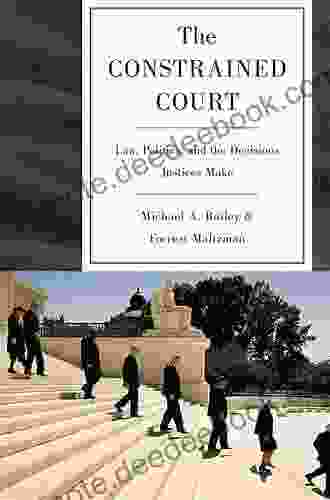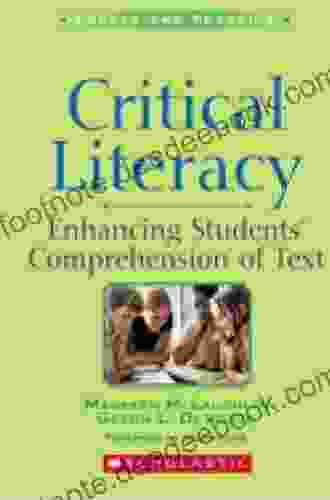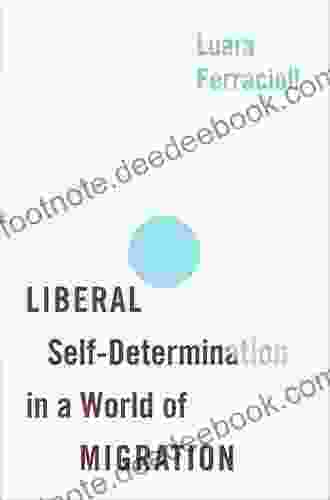Unveiling the Interplay of Law, Politics, and Judicial Decision-Making: A Comprehensive Exploration

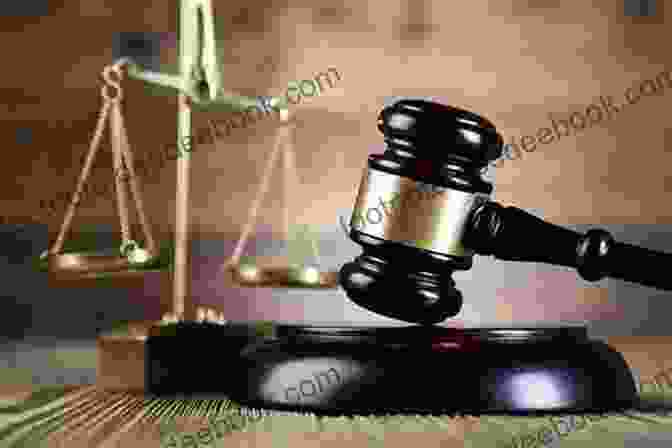
: The Intertwined Worlds of Law and Politics
The realm of law and politics is an intricate tapestry woven with complex threads, where each strand exerts a profound influence on the other. This interplay is particularly evident in the decisions rendered by judges, who navigate the delicate balance between their legal obligations and the ever-present undercurrents of political forces. In this comprehensive article, we delve into this captivating dynamic, exploring the ways in which law, politics, and judicial decision-making converge and diverge.
4.6 out of 5
| Language | : | English |
| File size | : | 3511 KB |
| Text-to-Speech | : | Enabled |
| Screen Reader | : | Supported |
| Enhanced typesetting | : | Enabled |
| Word Wise | : | Enabled |
| Print length | : | 216 pages |
1. The Foundations of Judicial Decision-Making
Judicial decision-making rests upon a solid foundation of principles and methodologies. The cornerstone of this foundation is the legal framework, which provides a set of rules, statutes, and precedents that guide judges in their deliberations. These laws serve as the objective benchmarks against which arguments are evaluated and judgments are crafted. However, the legal framework is not static but rather evolves over time through legislative amendments, judicial interpretations, and societal shifts.
In addition to the legal framework, judges also draw upon their own experiences, values, and understanding of the world when making decisions. These subjective factors can influence how they interpret the law and apply it to specific cases.
2. The Impact of Politics on Judicial Decision-Making
The political landscape inevitably exerts an influence on judicial decision-making, albeit to varying degrees. Political ideology, party affiliation, and the appointment process can all shape the perspectives and decisions of judges.
Appointed by elected officials, judges often reflect the political views of those who select them. Conservative judges, for instance, may favor a strict interpretation of the law with limited government intervention, while liberal judges may prioritize social justice and individual rights.
Moreover, the political context in which cases are decided can also influence judicial outcomes. During times of social unrest or political polarization, judges may be more likely to align their decisions with prevailing public opinion or the interests of the party in power.
3. Legal Realism and the Role of Extralegal Factors
Legal realism, a school of thought that emerged in the early 20th century, challenges the notion that judges make decisions solely based on objective legal principles. Legal realists argue that judges are inherently political actors who inevitably consider extralegal factors, such as social values, economic interests, and political consequences, in their deliberations.
According to legal realists, judges often make decisions based on their own personal beliefs, biases, and experiences. They may also be influenced by their interactions with other actors within the legal system, such as lawyers, politicians, and the media.
4. The Tension Between Law and Politics
The relationship between law and politics is a dynamic and often contentious one. While the law provides the framework for judicial decision-making, political forces can exert significant pressure on judges to interpret the law in certain ways. This tension can lead to conflicts between legal principles and political expediency.
For example, a judge may be faced with a case that raises concerns about racial discrimination. The legal framework clearly prohibits discrimination, but the judge may feel pressure from political actors to reach a decision that aligns with the interests of a particular group.
5. Judicial Independence and the Resistance to Political Influence
To maintain the integrity of the judicial system, it is essential for judges to maintain their independence and resist undue political influence. This independence is protected through various mechanisms, such as lifetime tenure, fixed salaries, and the separation of powers.
Independent judges are more likely to make decisions based on the law and their own convictions, rather than yielding to political pressures. They can also serve as a bulwark against government overreach and protect individual rights from political encroachment.
6. The Limits of Judicial Power and the Importance of Judicial Restraint
While judges have significant power to interpret the law and make decisions, they also operate within certain constraints. The doctrine of judicial restraint, for example, imposes limits on the ability of judges to overturn legislative acts or impose their own personal views on society.
By adhering to the principles of judicial restraint, judges can avoid overstepping their authority and preserve the balance of power between the different branches of government.
7. The Role of Judicial Activism and the Expansion of Judicial Power
In contrast to judicial restraint, judicial activism involves judges using their authority to expand the scope of the law and promote social change. Activist judges may be more willing to interpret laws broadly or create new doctrines in order to achieve certain societal outcomes.
Judicial activism has been both praised and criticized, with proponents arguing that it allows judges to address pressing social issues while critics contend that it undermines the separation of powers and democratic principles.
: The Evolving Nexus of Law, Politics, and Judicial Decision-Making
The interplay of law, politics, and judicial decision-making is a complex and ever-evolving phenomenon. While the law provides a foundation for judicial decision-making, political forces and extralegal factors inevitably influence the interpretation and application of the law.
The tension between law and politics requires delicate navigation by judges, who must maintain their independence and uphold legal principles while also being responsive to societal needs. Understanding the dynamics of this relationship is crucial for ensuring the integrity of our judicial system and protecting the rights and freedoms of all citizens.
4.6 out of 5
| Language | : | English |
| File size | : | 3511 KB |
| Text-to-Speech | : | Enabled |
| Screen Reader | : | Supported |
| Enhanced typesetting | : | Enabled |
| Word Wise | : | Enabled |
| Print length | : | 216 pages |
Do you want to contribute by writing guest posts on this blog?
Please contact us and send us a resume of previous articles that you have written.
 Book
Book Novel
Novel Chapter
Chapter Genre
Genre Reader
Reader Library
Library Paperback
Paperback E-book
E-book Magazine
Magazine Newspaper
Newspaper Paragraph
Paragraph Sentence
Sentence Shelf
Shelf Glossary
Glossary Preface
Preface Scroll
Scroll Tome
Tome Classics
Classics Library card
Library card Biography
Biography Autobiography
Autobiography Memoir
Memoir Thesaurus
Thesaurus Narrator
Narrator Character
Character Resolution
Resolution Stacks
Stacks Periodicals
Periodicals Study
Study Scholarly
Scholarly Academic
Academic Journals
Journals Reading Room
Reading Room Special Collections
Special Collections Literacy
Literacy Thesis
Thesis Dissertation
Dissertation Reading List
Reading List Book Club
Book Club Textbooks
Textbooks Erin Trejo
Erin Trejo Ryan Dalton
Ryan Dalton Lynette Noni
Lynette Noni Anton Eitzinger
Anton Eitzinger Kimberly Willis Holt
Kimberly Willis Holt James Dashner
James Dashner Karen J Bun
Karen J Bun Marilynn Mair
Marilynn Mair Kate M Wachs
Kate M Wachs Julie Turjoman
Julie Turjoman Paul Oliver
Paul Oliver Richard Evans
Richard Evans Dennis R Harrison
Dennis R Harrison Stan Lee
Stan Lee Norman Ridley
Norman Ridley Richard Rawlings
Richard Rawlings Montgomery Blair Sibley
Montgomery Blair Sibley Edward Lear
Edward Lear Lynda Lahman
Lynda Lahman Taran Singh
Taran Singh
Light bulbAdvertise smarter! Our strategic ad space ensures maximum exposure. Reserve your spot today!
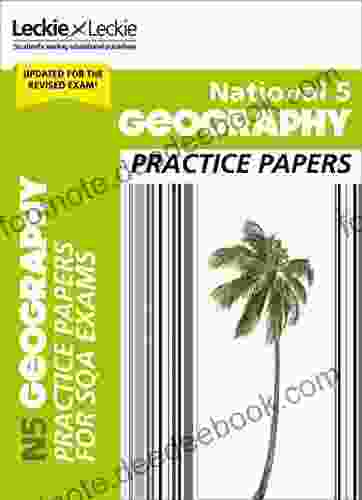
 Joshua ReedNational Geography Practice Papers: A Comprehensive Guide for Success in AP...
Joshua ReedNational Geography Practice Papers: A Comprehensive Guide for Success in AP... Cason CoxFollow ·8.9k
Cason CoxFollow ·8.9k Rod WardFollow ·3.3k
Rod WardFollow ·3.3k Edgar Allan PoeFollow ·9.5k
Edgar Allan PoeFollow ·9.5k Jamie BlairFollow ·16.5k
Jamie BlairFollow ·16.5k Brandon CoxFollow ·19.6k
Brandon CoxFollow ·19.6k Salman RushdieFollow ·18.4k
Salman RushdieFollow ·18.4k Anthony BurgessFollow ·13.5k
Anthony BurgessFollow ·13.5k Deacon BellFollow ·17.8k
Deacon BellFollow ·17.8k
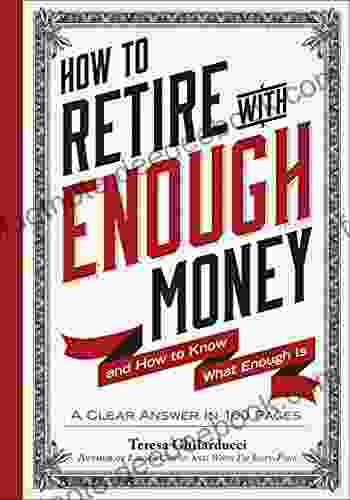
 Allen Ginsberg
Allen GinsbergUnveiling the True Meaning of Enough: A Comprehensive...
: In the relentless pursuit of progress and...

 Clay Powell
Clay PowellHawker Hunter: The Jet Fighter that Shaped British...
Nestled in the halls of aviation...
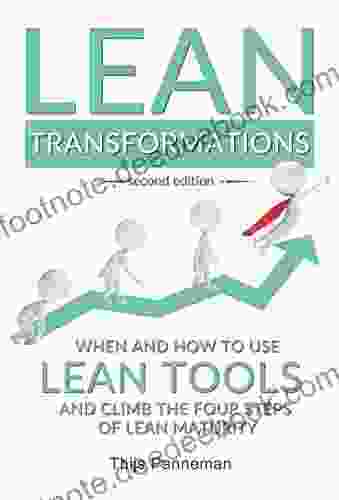
 Alec Hayes
Alec HayesWhen and How to Use Lean Tools and Climb the Four Steps...
Lean is a management...

 Trevor Bell
Trevor BellVolume of Charlotte Mason Original Homeschooling: A...
Charlotte Mason's original...

 John Parker
John ParkerAscending Tristan da Cunha: A Comprehensive Guide to...
Prepare yourself for an extraordinary journey...
4.6 out of 5
| Language | : | English |
| File size | : | 3511 KB |
| Text-to-Speech | : | Enabled |
| Screen Reader | : | Supported |
| Enhanced typesetting | : | Enabled |
| Word Wise | : | Enabled |
| Print length | : | 216 pages |


